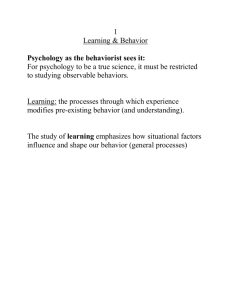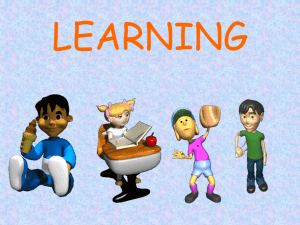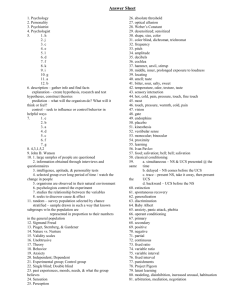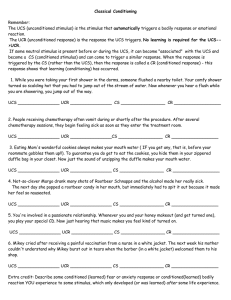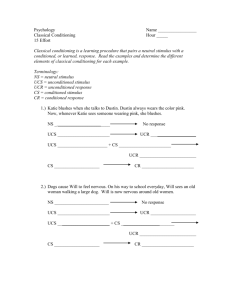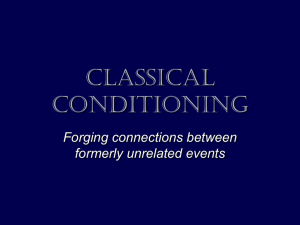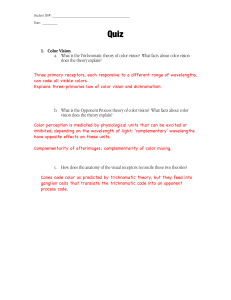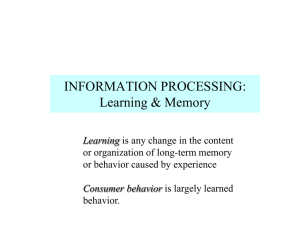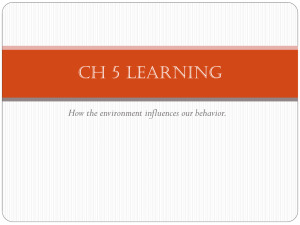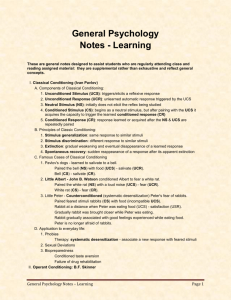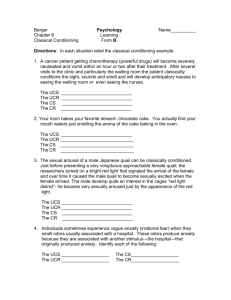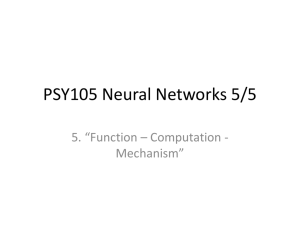d. learning_part 1
advertisement
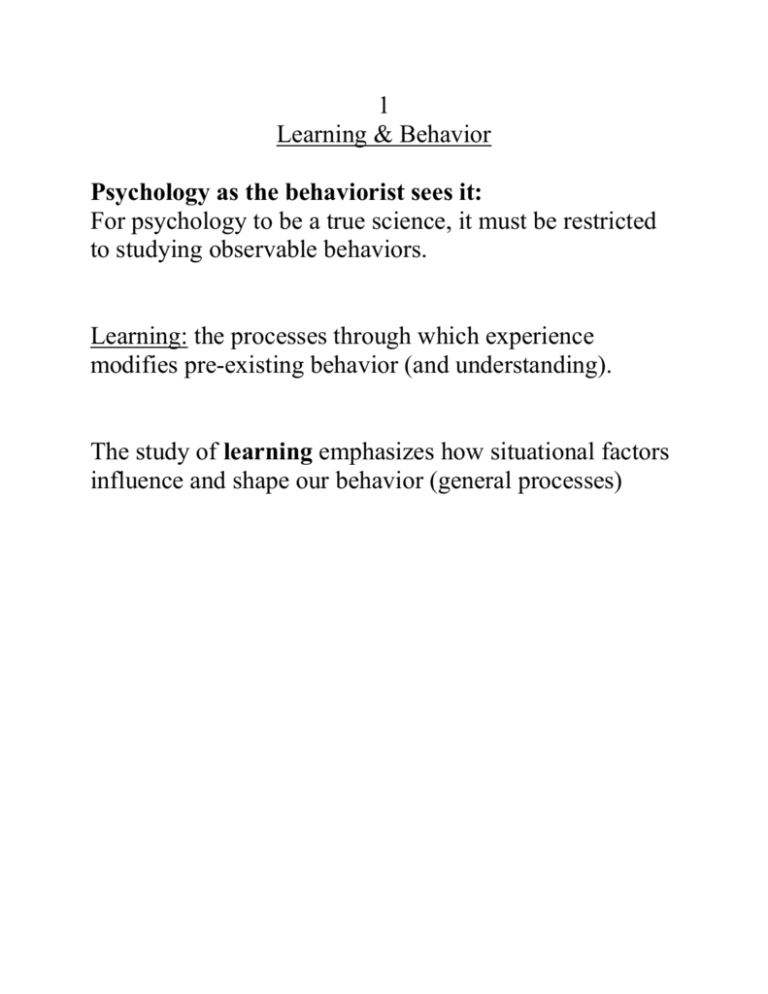
1 Learning & Behavior Psychology as the behaviorist sees it: For psychology to be a true science, it must be restricted to studying observable behaviors. Learning: the processes through which experience modifies pre-existing behavior (and understanding). The study of learning emphasizes how situational factors influence and shape our behavior (general processes) 2 Classical Learning General Principles and Terms Pre-existing Behaviors Reflex: "hardwired" behavioral responses elicited by a stimulus without any prior learning. bright light ----> blinking red-hot stove ----> pull back hand 3 Unconditioned Stimulus (UCS): Any stimulus that will elicit a reflex in an animal or person. Unconditioned Response (UCR): The reflexive behavior elicited by an animal or person when presented with a UCS. 4 Neutral Stimulus (NS): Everything else; any stimulus that does not elicit a particular response*. *Orienting to novel stimuli & Habituation 5 Learning through Experience: Association & Conditioning A little Historical Background ... 1. Twitmeyer's (1902) research 6 2. Pavlov's (1904-1920's) research 7 How are Associations between Stimuli Formed? Major Steps in the Acquisition of a Conditioned Response 1. By presenting a NS just before a UCS, the NS will become associated with the UCS. 2. The NS becomes a Conditioned Stimulus (CS) 3. The CS is like a signal (or warning) that the UCS is about to be presented. 8 4. The CS will elicit a Conditioned Response (CR) 5. The CR is based on the expectation that the UCS is going to be presented. 6. The CR is not exactly the same as the UCR (generally a little weaker ... Why???) 9 What Factors Determine Whether a CS will be Associated with a UCS? 1. Timing (order of presentation) Forward = Backward = Simultaneous = 10 What Factors Determine Whether a CS will be associated with a UCS? 2. Predictability (How often or reliably does the CS precede the UCS?) 3. Signal Strength & Attention (Salience & “Overshadowing”) 11 Learning From Our Experiences 1. Second (and higher) order conditioning 2. Stimulus Discrimination and Stimulus Generalization (The case of Little Albert) 3. Biopreparedness: some events are more easily associated than others ... (Taste aversion learning) 12 The Fate of Learned Associations 1. Extinction 2. Spontaneous Recovery
